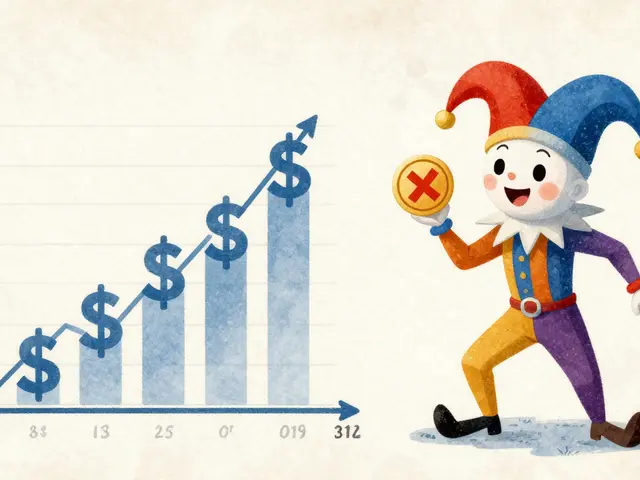Crypto Mining Country Selector
Select your mining priorities below to see which countries best match your operation. The tool compares the top 10 mining-friendly jurisdictions based on your criteria.
Your Mining Priorities
Mining Operation Type
Matching Countries
United States
Kazakhstan
Iceland
Canada
Switzerland
When choosing where to set up a mining farm, crypto mining-friendly countries matter more than ever. In 2025 the mix of energy prices, tax rules, and regulatory clarity creates a clear hierarchy of destinations that can make or break a mining operation’s profitability.
Crypto mining-friendly countries are jurisdictions that combine low electricity costs, favorable tax treatment, supportive government policies, and a stable legal environment for cryptocurrency mining. Below you’ll find the latest ranking, the factors that drive each country’s score, and practical guidance on how to match a location to your specific mining strategy.
Why the Country matters for Mining
- Electricity is the single biggest operating expense - a $0.02 per kWh advantage can shave years off a payback period.
- Tax regimes differ dramatically: some nations levy corporate tax on mining revenue, others exempt crypto gains entirely.
- Regulatory certainty reduces the risk of sudden bans, fines, or banking shutdowns.
- Climate and renewables affect cooling costs and long‑term sustainability goals.
2025 Ranking - Top 10 Mining‑Friendly Jurisdictions
- United States
- Kazakhstan
- Iceland
- Canada
- Switzerland
- Norway
- Georgia
- Estonia
- El Salvador
- Japan

How Each Country Scores
| Country | Average Electricity Cost (USD/MWh) | Tax Treatment for Mining Revenue | Regulatory Clarity | Renewable Energy Share | Notable Incentives |
|---|---|---|---|---|---|
| United States | 0.04 - 0.07 (varies by state) | Corporate tax on profits; no capital‑gains tax for individuals | High - federal guidance plus state‑level licensing | 30% (Texas, Wyoming, and Nevada lead on wind/solar) | Tax credits in Texas, reduced permitting time in Wyoming |
| Kazakhstan | 0.02 - 0.03 (government‑subsidized) | Corporate tax exemption for entities in Astana International Financial Centre until 2066; personal crypto gains tax‑free | Medium - clear incentives but occasional policy shifts | 55% (large hydro and wind projects) | Low‑cost electricity zones, fast‑track licensing for miners |
| Iceland | 0.01 - 0.02 (geothermal) | No corporate tax on crypto‑related income; minimal import duties | High - clear legal framework, no explicit bans | 100% (geothermal & hydro) | Free land leases in remote regions, low‑cost cooling due to climate |
| Canada | 0.03 - 0.05 (province‑dependent) | Provincial tax varies; Quebec offers 0% corporate tax on crypto mining for certified projects | Medium - provincial variance creates complexity | 70% (hydropower in Quebec, BC) | Green‑energy subsidies, stable political environment |
| Switzerland | 0.05 - 0.06 (mixed mix) | Taxed as ordinary corporate income; crypto‑specific guidance from FINMA | Very High - FINMA’s “crypto‑friendly” stance | 45% (hydro, solar) | Crypto‑valley incubators, banking access for miners |
| Norway | 0.02 - 0.04 (hydropower) | Corporate tax 22%; no specific crypto tax | Medium - ongoing debate over environmental impact | 98% (hydro) | Low‑cost renewable electricity zones in the north |
| Georgia | 0.02 (hydro & thermal) | No capital‑gains tax; flat 15% corporate tax on profits | High - government actively courting miners | 65% (hydro + wind) | Tax holidays for mining equipment, streamlined permits |
| Estonia | 0.04 (mixed grid) | Corporate tax on distributed profits only; crypto‑gains tax‑free if retained | High - e‑Residency program simplifies company formation | 40% (wind, solar) | e‑Residency, fast digital onboarding for mining firms |
| El Salvador | 0.05 - 0.07 (hydro + imported) | Zero capital‑gains tax; no corporate tax on crypto mining if operated by a local entity | High - Bitcoin legal tender status | 35% (hydro, geothermal) | Government grants for solar‑powered mining hubs |
| Japan | 0.08 - 0.10 (high grid cost) | Corporate tax 30%; crypto profits taxed as capital gains | High - clear licensing via FSA | 25% (hydro, solar) | Subsidies for renewable upgrades, strong banking ecosystem |
Matching Countries to Your Mining Profile
Not every jurisdiction suits every operation. Use the matrix below to decide which factors matter most for you.
- Large‑scale institutional farms: prioritize regulatory certainty, banking access, and stable electricity contracts - United States, Switzerland, Canada.
- Cost‑focused startups: look for the cheapest power and tax breaks - Kazakhstan, Iceland, Georgia.
- Green‑energy champions: want >80% renewable mix - Iceland, Norway, Canada (Quebec).
- Crypto‑native businesses that need easy company formation and crypto‑friendly banking - Estonia, Switzerland, Hong Kong (not in top ten but worth a mention).
Regulatory Navigation - Practical Steps
- Identify the target jurisdiction from the ranking.
- Check the latest electricity tariff tables (most governments publish them quarterly).
- Register a legal entity - use e‑Residency in Estonia or the Astana International Financial Centre in Kazakhstan for tax advantages.
- Secure a power purchase agreement (PPA) with a local utility. Aim for a fixed‑rate contract of 1-3years to lock in costs.
- Apply for any mining‑specific licenses - Wyoming’s “Special Purpose Mining License” is a template many states emulate.
- Open a corporate bank account. In the US, look for crypto‑friendly banks such as Silvergate (if still operating) or Mercury. In Switzerland, consider SEBA Bank.
- Implement environmental reporting if required - Norway and Iceland demand annual CO₂ impact statements.
- Monitor policy updates. Set Google Alerts for keywords like “crypto mining regulation + [country]”.

Potential Pitfalls & How to Avoid Them
- Regulatory surprise: Even “friendly” countries can change rules quickly. Keep a legal counsel on retainer.
- Hidden transmission fees: Some jurisdictions quote low generation prices but add hefty grid fees. Always request the full “door‑to‑door” cost.
- Cooling costs: Cold climates like Iceland reduce fan power, but remote locations raise logistics expenses. Factor transport and labor into ROI.
- Banking shutdowns: Ensure your bank has a clear policy on crypto mining. Keeping a secondary banking relationship mitigates risk.
Future Outlook - Where the Rankings May Shift
By 2027 we expect three trends to reshuffle the list:
- Carbon‑pricing schemes in Europe could make Norway’s cheap hydro more expensive unless miners purchase carbon credits.
- New renewable projects in Texas and the Australian outback may bring sub‑0.02USD/kWh rates, challenging Kazakhstan’s cost lead.
- Digital‑identity regulations in the EU could force miners to implement KYC on equipment operators, affecting countries with looser identity rules.
Keeping an eye on these developments will help you stay ahead of the curve.
Frequently Asked Questions
Which country offers the cheapest electricity for mining?
Iceland and Kazakhstan both provide sub‑$0.02/kWh rates, but Iceland’s geothermal supply is consistently cheap year‑round, while Kazakhstan’s rates can fluctuate with government subsidies.
Is mining legal in China in 2025?
Officially, China bans all crypto mining. However, underground operations still exist, especially in Sichuan’s rainy season when hydropower is cheap. The regulatory risk is extremely high.
Do I need a special mining license in the United States?
Most states don’t require a dedicated mining license, but you must comply with local zoning, environmental, and electricity‑provider rules. Wyoming and Texas have streamlined “Special Purpose Mining” permits that speed up the process.
Can I claim tax deductions for mining equipment?
In most jurisdictions, mining hardware is a capital expense that can be depreciated over 3-5years. Countries like Estonia and Georgia allow immediate expensing if the equipment is used for crypto‑related activities.
What are the environmental reporting requirements?
Norway mandates annual CO₂ emissions reports for any facility over 5MW. Iceland requires a simple heat‑output statement. The United States has no federal reporting, but some states (e.g., California) have their own sustainability disclosures.







Millsaps Crista
October 14, 2025 AT 08:20Getting the power bill right is a game‑changer for any miner. Your breakdown of electricity costs across the top ten really helps spot the cheap spots. If you pair that with a solid PPA you can lock in rates for years, which smooths cash flow. Also, don’t forget to factor in cooling-cold climates can shave another few percent off OPEX. Keep digging, the data will keep evolving.
Matthew Homewood
October 14, 2025 AT 19:26When you look at mining through the lens of economic equilibrium, the cheapest jurisdictions become natural attractors. The interplay between tax policy and energy pricing creates a feedback loop that reshapes global hashpower distribution. It’s fascinating how a modest shift in subsidy can ripple through the entire network. The ranking you posted captures that dynamic nicely.
Shane Lunan
October 15, 2025 AT 06:33Looks good enough. Could use more depth.
Russel Sayson
October 15, 2025 AT 17:40The crypto mining landscape in 2025 reads like a living textbook on how energy economics and regulatory foresight can dictate the fate of an entire industry.
Your ranking does an admirable job of spotlighting the crown jewels, yet the story beneath the numbers is even richer.
Take Iceland, for example, where geothermal heat not only powers rigs at sub‑cent per kilowatt‑hour but also provides natural cooling, slashing operational expenses beyond the mere electricity figure.
Contrast that with Japan, where the high grid cost forces miners to either shoulder hefty energy bills or gamble on expensive renewable upgrades.
In Kazakhstan, the government’s aggressive subsidies have turned the steppe into a magnet for start‑ups, but the policy volatility remains a hidden risk that investors must hedge against.
Meanwhile, the United States offers a patchwork of state‑level incentives-Wyoming’s special mining licenses, Texas’s tax credits-that can dramatically improve ROI for large‑scale farms.
Switzerland’s regulatory clarity, paired with its sophisticated banking ecosystem, provides a sanctuary for institutional players seeking legal certainty.
Norway’s almost pure hydro portfolio delivers a near‑zero carbon footprint, yet the nation’s environmental watchdogs are tightening scrutiny, potentially adding compliance costs.
Georgia’s flat corporate tax coupled with tax holidays for equipment imports makes the country a low‑barrier entry point, but logistical challenges in remote areas can offset those fiscal benefits.
Estonia’s e‑Residency program removes administrative friction, allowing entrepreneurs to incorporate remotely and tap into European markets with ease.
El Salvador’s bold move to recognize Bitcoin as legal tender creates a unique regulatory environment, though the fledgling infrastructure still grapples with scalability.
The renewable share metric you highlighted is more than an environmental badge; it directly influences cooling costs and long‑term sustainability metrics prized by ESG‑focused investors.
Furthermore, the interplay between corporate tax rates and the ability to deduct mining equipment can shave millions off a project's break‑even point.
Investors should also monitor forthcoming carbon‑pricing mechanisms in Europe, as they could reshape the economics of Norway and Sweden’s cheap hydro.
In sum, while the table gives a snapshot, a deep dive into each jurisdiction’s policy stability, infrastructure readiness, and hidden fees is essential for anyone serious about scaling mining operations.
Isabelle Graf
October 16, 2025 AT 04:46Honestly, glorifying cheap power without mentioning the environmental toll feels like greenwashing. The post should flag the carbon impact of each country.
Maria Rita
October 16, 2025 AT 15:53Point taken, the energy source matters as much as cost. Adding a column for carbon intensity could make the ranking even more useful for eco‑conscious miners.
Jordann Vierii
October 17, 2025 AT 03:00What’s cool about this list is how it showcases the global diversity of mining hubs-from the icy plains of Iceland to the bustling valleys of Switzerland. It really underscores that crypto isn’t bound by geography, and each region brings its own flavor of opportunity.
Lesley DeBow
October 17, 2025 AT 14:06One could argue that mining is a modern alchemy, turning cheap electricity into digital gold, and this map is the philosopher’s stone. :) The interplay of policy and power feels almost poetic.
Scott G
October 18, 2025 AT 01:13It is evident that the author has invested considerable effort into aggregating data across disparate jurisdictions. The structured presentation facilitates comparative analysis, which is invaluable for stakeholders contemplating capital allocation.
VEL MURUGAN
October 18, 2025 AT 12:20While the data is comprehensive, the omission of transmission fees skews the true cost of electricity. A more granular breakdown would prevent readers from underestimating operational expenditures.
Mitch Graci
October 18, 2025 AT 23:26Wow-another list ranking countries like it’s a beauty contest!!! Who cares about cheap power when you can mine in the homeland and keep everything “American”!!! 🙄
DeAnna Greenhaw
October 19, 2025 AT 10:33One must appreciate the scholarly rigor displayed herein, yet the narrative suffers from a lack of contextual nuance. The tableau of figures, while impressive, would benefit from a discussion of geopolitical stability. Moreover, the absence of a risk assessment framework leaves a conspicuous gap. An academic audience expects more than a mere enumeration; they seek insight into the underlying macro‑economic currents that propel these rankings. Therefore, an annex detailing policy trajectories would elevate the work from a static list to a dynamic strategic guide.
Luke L
October 19, 2025 AT 21:40The suggestion to ignore regulatory risk is frankly naïve, especially given recent crackdowns in several jurisdictions.
Cynthia Chiang
October 20, 2025 AT 08:46Great job pulling all this info together! It really helps newcomers feel less lost when they start looking at where to set up a farm. Keep the community updates coming.
Hari Chamlagai
October 20, 2025 AT 19:53It is a misstep to treat electricity cost as the sole determinant of mining viability; one must also weigh legal compliance, supply chain logistics, and long‑term policy stability. Without a holistic view, any investment decision remains fundamentally flawed.
Ben Johnson
October 21, 2025 AT 07:00Interesting take, though the list could have mentioned how some countries are actively courting miners with crypto‑friendly visas.
Della Amalya
October 21, 2025 AT 18:06Absolutely! Highlighting visa programs would add another layer of practicality, helping miners navigate not just the power grid but also the immigration maze. Your insights are already solid, and this tweak would make the guide truly comprehensive.